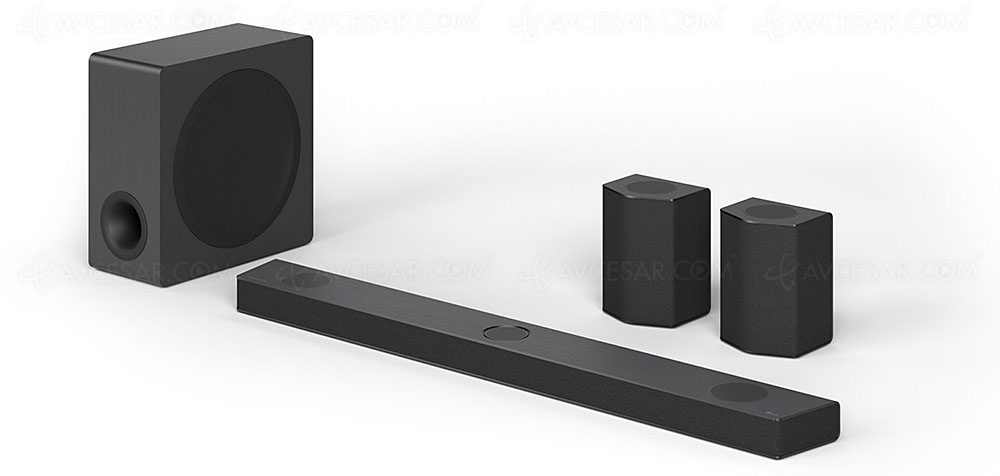How to Choose the Best Speakers for Music, Movies, and Everyday Listening

Finding the right sound system can feel overwhelming. With so many options out there, from compact wireless setups to large surround-sound systems, it’s easy to get lost in technical jargon. Ultimately, what matters most is how well the audio fits into your daily life. Whether you’re blasting your favorite playlist while cooking dinner, binge-watching a new series, or hosting a family get-together, the right speakers can make the moment more memorable.
Below, we’ll break down what to look for in a set of speakers, in plain and simple terms. Think of this as your friendly guide, helpful, practical, and free from unnecessary tech-speak.
Start with Your Space
One of the biggest mistakes people make is ignoring the size and shape of the room where they’ll use their speakers. Imagine trying to fill a large living room with the same tiny Bluetooth unit you’d use on your office desk; it’s not going to give you the rich, full sound you’re hoping for.
- Small rooms: For bedrooms, home offices, or dorms, compact speakers or bookshelf units often work perfectly. They don’t overwhelm the space but still deliver clarity.
- Medium rooms, such as living rooms or small apartments, may benefit from soundbars or mid-sized floor speakers. These strike a balance between power and subtlety.
- Large rooms: Open-plan homes or dedicated entertainment spaces require more robust setups, often featuring subwoofers for deep bass and multiple speakers to distribute sound evenly.
A good rule of thumb is this: match the speaker size to the size of the space. It’s like choosing the right air conditioner or heater. You wouldn’t buy a tiny unit for a massive lounge, and the same principle applies here.
Think About How You’ll Use Them
Your daily habits matter more than the technical specifications most retailers throw at you. Ask yourself: What do I actually want these speakers to do?
- For music lovers: If you spend most of your day with background music, prioritize clarity and balance. A system with good midrange tones ensures vocals and instruments sound natural. Picture a café: the speakers there don’t just pump out noise; they set the mood.
- For movie buffs: You’ll want something that handles surround sound. Dialogue should be crisp, action sequences immersive, and quiet moments detailed. Consider the difference between watching an explosion-heavy film on a laptop versus in a cinema—the audio completely alters the experience.
- For everyday life: Maybe you just want better sound for podcasts, online classes, or video calls. In this case, ease of use and portability might matter more than deep bass or cinematic immersion. Teachers and professionals often rely on simple, dependable audio rather than heavy-duty setups.
By considering how the speakers will fit into your routine, you’ll avoid buying something that looks fancy but doesn’t really serve your needs.
Don’t Overlook Connectivity
The way you connect to your speakers can make or break the experience. These days, you’re not just dealing with the old-fashioned AUX cable.
- Bluetooth: Perfect for quick connections. You can play music from your phone, tablet, or laptop without a mess of wires. Great for casual listening.
- Wi-Fi: Often more stable than Bluetooth, making it ideal for streaming higher-quality audio or connecting to smart home systems.
- Wired connections: Still the gold standard for many audiophiles because they minimize signal loss. If you’re setting up a permanent home theater, this might be the best option.
Imagine you’re a fitness instructor running a class. Bluetooth might work for a quick playlist, but if you need reliability and power every single day, a wired system could save you from awkward silences mid-session.
Pay Attention to Sound Quality But Keep It Simple
“Sound quality” can sound intimidating, but you don’t need to be an audio engineer to recognize good audio. Here’s how to think about it:
- Bass: The low, thumping notes you feel in your chest. Essential for dance music, action movies, and live concerts.
- Midrange: Where voices and most instruments sit. If this isn’t clear, everything else will sound muddy.
- Treble: The higher notes, like cymbals or flutes. Too sharp, and it feels harsh; too soft, and the music lacks sparkle.
Try this simple test: play your favorite song on different systems. If you notice details you’ve never heard before like the subtle pluck of a guitar string or the breath of a singer—you’ve probably found a good match.
Balance Budget with Longevity
It’s tempting to opt for the cheapest option, especially with numerous budget-friendly products available on the market. But here’s the truth: a slightly higher upfront cost often means better durability and sound. Think about how restaurants or gyms invest in sturdy sound systems; they’re not replacing them every few months because the initial purchase was built to last.
Instead of asking, “What’s the cheapest?”, try asking, “What will give me the best value for years to come?” That mindset shift ensures you make a smarter investment.
Where to Find the Right Speakers
By now, you’ve probably got an idea of what fits your space, lifestyle, and budget. Once you’re ready to explore, you can browse a wide selection of speakers to compare features and styles that match your needs.
Why It All Matters
Sound plays a bigger role in our lives than we often realize. A well-chosen set of speakers can turn a dull evening into a dance party, transform a simple movie night into a cinematic experience, or make an online class feel like a real conversation. Just as advances in audio technology have shaped the music and entertainment industries, selecting the right setup at home can significantly impact your day-to-day experiences.
When you invest in quality sound, you’re not just buying equipment; you’re buying richer moments, better memories, and a little extra joy in your everyday life.

Source: How to Choose the Best Speakers for Music, Movies, and Everyday Listening


